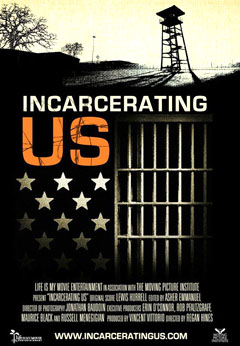Growing up in the border town of Roma, Texas, in the ’90s, Alejandra (Moreno) Lopez remembers spending a significant amount of time with her father Pedro Moreno, mother Melba, older brother Sergio and younger brother Peter (Pedro) Jr.
She recalls her parents being family- and work-oriented. Pedro Moreno was a rancher his entire life. On days off, the family would spend weekends at the ranches shared by the Moreno family. They’d also take hour-long drives to McAllen to see movies. Pedro always let Alejandra choose where they’d eat lunch. She remembers her dad as a loving, protective-type father to all his kids, which continues today.
She said nightly happenings formed her favorite memories. “We would lay down with him in bed and watch the Discovery or History Channel,” Lopez recalled, noting she and her brothers still love watching educational entertainment shows.
That would all change in 1996. Pedro, Melba and much of the Moreno family were arrested as part of a 78-person federal marijuana sting. Many would be sent to prison, with Pedro and four of his brothers all sent away for life as first-time offenders under the “kingpin statute.”
The 61-year-old is the only brother remaining in prison, with all four of his brothers gaining clemency in January 2016. With his right to appeal waived, Moreno and his family hope he can receive his own compassionate release in the near future.
Pedro Moreno’s Family: Arrested and Divided
Pedro Moreno was part of a month-long sweep of arrests, with the Feds calling the Starr County-based distribution ring one of the largest operations along the U.S.-Mexico border. Running from 1986 and 1996, the authorities allege that the operation should be tried as one extensive prosecution. Lawyers for the Morenos and other families involved pushed back, calling the round-ups of families unwarranted, adding that a giant prosecution made mounting a defense difficult for those charged.
The crimes surprised Lopez even as a child. Before then, her father had never uttered a word about the plant or any operation. What she does remember is her dad and his brothers working the family ranches to support their grandfather and put their sisters through college. Along the way, Moreno worked other jobs from around 12 years old on, taking up employment at the meat market and also earning his welding certificate.
Even with the amount of cannabis allegedly transported, the family thought Moreno, his brothers, Melba and the others involved wouldn’t face such stiff sentences as non-violent, first-time offenders.
“They didn’t think they were going to make it a big case,” recalled Lopez, with the family assuming nobody would end up doing life for the charges.
Amy Povah, founder of the advocacy and clemency group, CAN-DO Foundation, said that “no one in their right mind would plead guilty in exchange for a life without parole sentence.” She believes Moreno was misled without understanding the magnitude of his plea.
Lopez doesn’t remember much of the trial. Though, the family has told her that the prosecution sought a significant victory for the feds and their political gains. Lopez claims their defense wasn’t much help either, stating their attorney essentially took his legal fees and “fed them to the wolves.” Moreno insisted on not pleading guilty but was ultimately convinced to do so by his counsel. In April 1998, he pled guilty to five counts of conspiracy to launder monetary instruments and for operating a continuing illegal enterprise.
Prosecutors say he also agreed to waive his right to appeal and assume responsibility. In exchange, he was scheduled to have his remaining charges dismissed. The prosecution would not oppose a sentence reduction for accepting responsibility. He would also receive consideration under a 5K1.1 motion for being a substantial assistance to authorities.
Instead, authorities increased Moreno’s initial maximum sentence after conducting his presentence report (PSR). Originally sentenced to a maximum of 405 months (33.75 years), the final PSR in 2001 recommended adding two points to his case for obstruction of justice. The decision granted Moreno zero points on its matrix for accepting guilt. The decision resulted in a five-point swing pushing his sentence to life.
Pedro Moreno and Family Try to Remain Positive Through the Pain
With the family sentenced, the kids began to spend time living with various family members over the years. Melba would spend much of her 13-year sentence in Tallahassee, Florida, before moving to a medical camp in Dallas-Fort Worth in later years. Pedro Moreno has moved more during his sentence, with time spent in Atlanta, Virginia, Victorville, and his current location, Atwater. The California location has led to Moreno not receiving visits since 2017.
The distance was recently brought to Alejandra’s attention when she saw a social media post asking where people first traveled by plane for vacation. “It was Atlanta, Georgia, to go see my parents in jail,” she said, adding that the trips are never a vacation.
Part of the family’s pain came from seeing the deterioration of their parents’ health. While Moreno largely remained his positive, caring self over the years, Melba began to experience heightened kidney issues from a condition that began before her arrest. She spent her last six years in prison on dialysis, eventually going into kidney failure and having open-heart surgery.
Melba would be released to live with Alejandra. She spent much of the year journaling. “She wrote to me every day even though she was dying,” said Alejandra.
A year after her release, Melba would have a brain aneurysm. She fell into a coma. Moreno called Alejandra regularly to check in until she passed away a week later.
Alejandra laments that her mother and the family didn’t get to enjoy more time together after her release. She noted that despite it all, her mother and father remained positive through most of the ordeal. Still, positivity can only carry so far. For Moreno, a momentary breaking point came with Melba’s passing, as he dealt with loss and where to go next. However, he’s since moved on as best a widower can. He continues to be the loving parent and grandparent, regularly handing out advice on calls.
The kids, however, have felt the effects of their parents and other loved ones being gone. In a 2018 letter to then-President Trump, Peter Moreno Jr. said that he and his siblings were deprived of a normal childhood through no fault of their own. “I am now 23 years old and have a young daughter that I would like to see grow up with her loving grandfather,” he wrote.
While they remain strong, Lopez believes she and her brothers live with depression in some form. She reports taking medication to address the pain.
With Pedro Moreno being the last family member in prison for the operation, the family hopes he can come home soon. Alejandra has set up a Change.org petition for Moreno’s release. The petition hopes to send 15,000 or more signatures to President Biden. As of this article’s submission, the petition has over 12,000 supporters signed on.
CAN-Do is one of several advocacy groups currently fighting for Moreno’s release. Povah hopes President Biden will live up to campaign promises to free cannabis offenders. After a Zoom conference call with White House counsel, Povah said, “They wanted input from clemency experts about the process and I brought up the need to focus on a categorical approach to free all remaining cannabis prisoners in federal prison.”
Read the entire story at High Times















